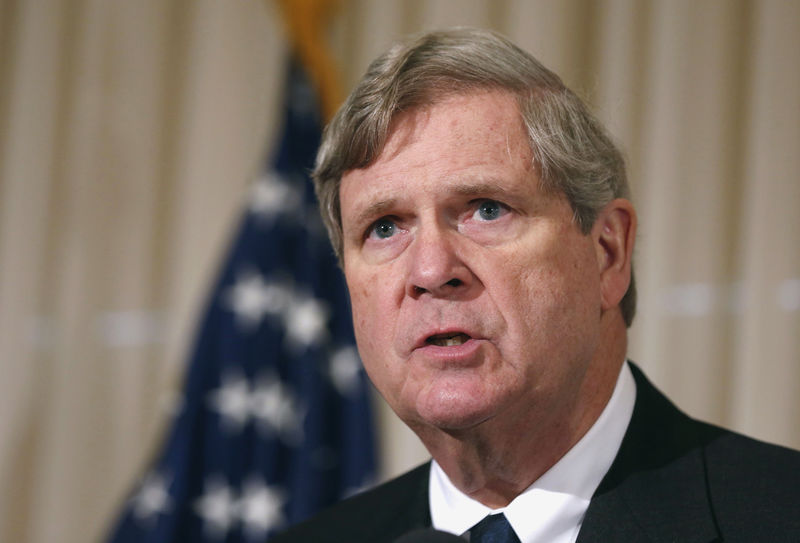By P.J. Huffstutter
CHICAGO (Reuters) - U.S. Department of Agriculture Secretary Tom Vilsack has directed agency staff to create and deliver an updated Animal Welfare Strategy plan within 60 days, according to an internal email reviewed by Reuters.
The emailed memo from Chavonda Jacobs-Young, head of the agency's Agricultural Research Service, was sent to all Animal Research Service employees on Friday afternoon in response to recent media reports over controversial animal welfare conditions at its U.S. Meat Animal Research Center in Nebraska.
The new strategy will include updated training for government employees and others who work with animals in the service's research labs, according to the email. In addition, an independent panel will be convened to review the group's animal handling protocols, policies and research practices.
What specific training steps would be implemented, and who would be on the independent review panel, is not known. Animal Research Service officials could not be reached for comment on Friday evening.
Two days earlier, the agency said it was looking into livestock conditions at its Nebraska-based center, in the wake of a New York Times report stating that facility staff had failed to follow basic animal welfare standards when conducting decades of research.
Researchers at the center, which is overseen by the Animal Research Service, are tasked with finding ways to bolster the profitability of the U.S. livestock industry, according to the paper's report, including making lamb chops bigger and pork loins less fatty.
But in the process, according to the Times report, the center put these animals into cruel and dangerous conditions and has operated outside of the federal Animal Welfare Act, which does not cover most farm animals used in research.
Jacobs-Young also informally named Eileen Thacker, a veterinarian and national program leader in both food safety and animal health at ARS, as the unit's first animal welfare ombudsman.
"Please remember we all own the responsibility for animal welfare; if you see something that disturbs you, please report it, first to your supervisor or their supervisor," Jacobs-Young wrote.

If employees believed that further action needed to be taken, they were advised to contact Thacker directly, according to the email.